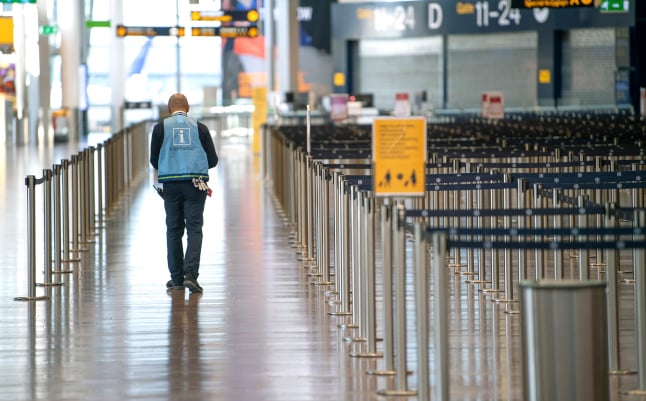Sweden benefits from having had relatively stable finances before the outbreak, but the economic fallout from the coronavirus crisis is still likely to have a major impact on the country and its residents.
According to the worst-case scenario, the Swedish economy could see a 10 percent drop in GDP and unemployment figures soar to 13.5 percent this year if the crisis drags on.
The main forecast paints an improved, but still gloomy, picture of what may lie ahead.
That scenario would see GDP fall by 4.0 percent this year, after which it would recover and grow by 3.5 percent next year, according to the Social Democrat-Green government's new estimates.
“The fall in growth is about as large as during the financial crisis. The recovery is expected to last for several years,” Finance Minister Magdalena Andersson told a press conference on Wednesday.
Unemployment is expected to increase from 6.8 percent last year to 9.0 percent this and next year.
“It's the biggest increase since the crisis in the '90s,” said Andersson.

Finance Minister Magdalena Andersson. Photo: Jessica Gow/TT
The government has presented a series of crisis packages to help businesses, startups, freelancers and people who have lost their jobs through the crisis – but the impact is still likely to be huge.
In its spring amendment budget put to parliament on Wednesday, the government suggests raising the expenditure ceiling by 350 billion kronor ($35 billion) to be able to finance all the new measures taken.
“It is the first time a sitting government has suggested raising the expenditure ceiling. We're doing that in order to leave a substantial margin. Our estimates could get significantly more expensive and we do not want to rule out potential future measures,” said Andersson.
It is unusually difficult to predict how the economy will be affected in the wake of the crisis. The government has also looked at a more positive scenario, in which Sweden makes a stronger recovery faster.
That would see GDP rise by 5.2 percent next year, with unemployment climbing back to almost the same level as before the pandemic.
“Given the unstable situation, the more pessimistic alternative scenario is perhaps more interesting,” said Andersson. “At the same time, all scenarios are very uncertain at the moment.”



 Please whitelist us to continue reading.
Please whitelist us to continue reading.
Member comments